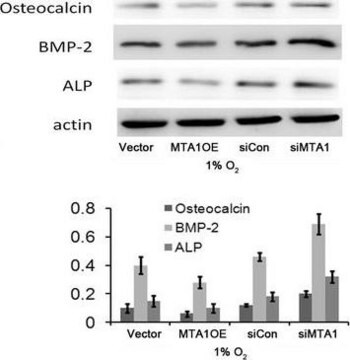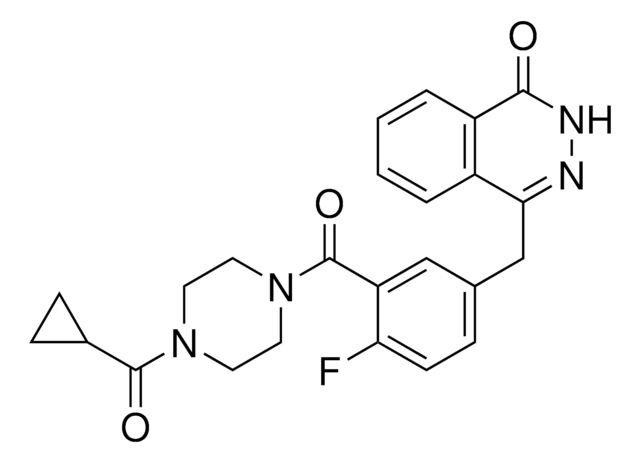B7931
Anti-BNIP3 antibody, Mouse monoclonal
clone ANa40, purified from hybridoma cell culture
Synonym(e):
Monoclonal Anti-BNIP3 antibody produced in mouse
About This Item
Empfohlene Produkte
Biologische Quelle
mouse
Konjugat
unconjugated
Antikörperform
purified immunoglobulin
Antikörper-Produkttyp
primary antibodies
Klon
ANa40, monoclonal
Form
buffered aqueous solution
Mol-Gew.
antigen 21.5 kDa
Speziesreaktivität
human
Konzentration
~2 mg/mL
Methode(n)
immunocytochemistry: suitable
immunoprecipitation (IP): suitable
indirect ELISA: suitable
microarray: suitable
western blot: 2-4 μg/mL using whole extract of transfected 293T (human embryonal kidney) cells expressing human BNIP3.
Isotyp
IgG2b
UniProt-Hinterlegungsnummer
Versandbedingung
dry ice
Lagertemp.
−20°C
Posttranslationale Modifikation Target
unmodified
Angaben zum Gen
human ... BNIP3(664)
Allgemeine Beschreibung
Spezifität
Immunogen
Anwendung
- western blotting
- immunoblotting
- immunocytochemistry
- immunoprecipitation enzyme linked immunosorbent assay (ELISA)
- immunofluorescence analysis
Biochem./physiol. Wirkung
Physikalische Form
Haftungsausschluss
Sie haben nicht das passende Produkt gefunden?
Probieren Sie unser Produkt-Auswahlhilfe. aus.
Lagerklassenschlüssel
10 - Combustible liquids
WGK
nwg
Flammpunkt (°F)
Not applicable
Flammpunkt (°C)
Not applicable
Analysenzertifikate (COA)
Suchen Sie nach Analysenzertifikate (COA), indem Sie die Lot-/Chargennummer des Produkts eingeben. Lot- und Chargennummern sind auf dem Produktetikett hinter den Wörtern ‘Lot’ oder ‘Batch’ (Lot oder Charge) zu finden.
Besitzen Sie dieses Produkt bereits?
In der Dokumentenbibliothek finden Sie die Dokumentation zu den Produkten, die Sie kürzlich erworben haben.
Unser Team von Wissenschaftlern verfügt über Erfahrung in allen Forschungsbereichen einschließlich Life Science, Materialwissenschaften, chemischer Synthese, Chromatographie, Analytik und vielen mehr..
Setzen Sie sich mit dem technischen Dienst in Verbindung.








